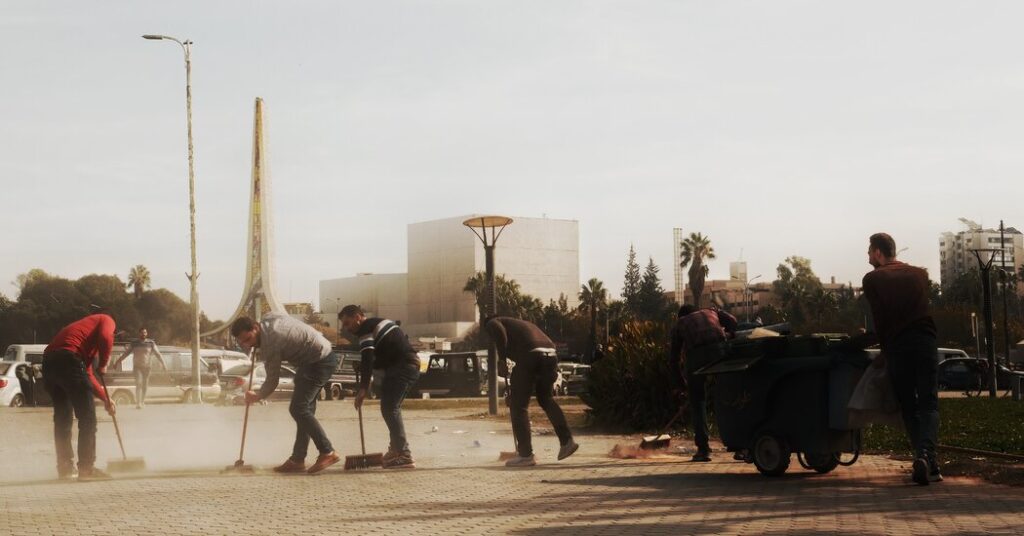When the Arab Spring that toppled dictators in Tunisia, Libya, Yemen and Egypt began, in 2010, the al-Assad regime had already ruled Syrians through fear and repression for some 40 years, most of it under martial law. When power passed from Hafez al-Assad to his son Bashar in 2000, the regime appeared to rebrand. Bashar promised reforms. He was supposed to be mild-mannered, and had reportedly specialized in ophthalmology because it was bloodless. He had trained in London and married a Syrian-British woman who was glowingly, infamously profiled in Vogue. But the government remained corrupt, and Syrians knew the nightmares that defiance could unleash: detention, torture and disappearance.
Despite the risks, in 2011, Syrians started to courageously and peacefully protest to demand concessions. Syrians have often told me that the days of the thawra, the revolution, were the most beautiful days in the country, days of possibility and solidarity. The protesters were farmers, college students, housewives, pharmacists, interior designers, schoolteachers, bakers and shopkeepers. They came from all parts of the country. They had different politics. They were of all sects. In late 2011, a Christian Damascene confided in me that he was secretly going to protests. He would meet at mosques with other like-minded friends, both Christian and Muslim, before heading out to the streets. He beamed with joy and told me that he felt alive.
That year, many spoke as if the future had finally arrived for Syria. There were secret salons to think about future constitutions and economic systems, the nature of citizenship, the development of laws and what role civil society should play. Not everyone had the same vision: Some wanted a religious state, others a secular one — for some “secular” was a dirty word, tainted by a regime that claimed to be so. These weren’t politicians — how could they be, in a country where political parties other than the ruling Baath were banned? They were just normal Syrians, giddy at the possibility of inhabiting a role long denied them in their governance and destiny.
Mr. al-Assad’s regime responded by opening fire on peaceful demonstrators. Killing many, arresting and torturing more, even children. Many fled to other countries, unable to return because they were wanted by the government, which took revenge on entire families, neighborhoods and cities.
Read the full article here


